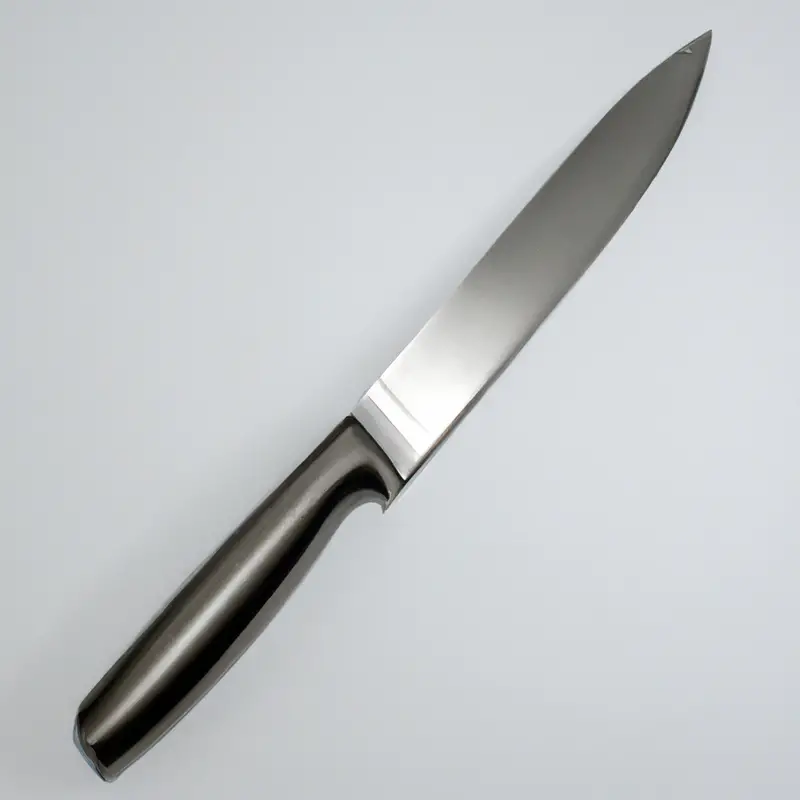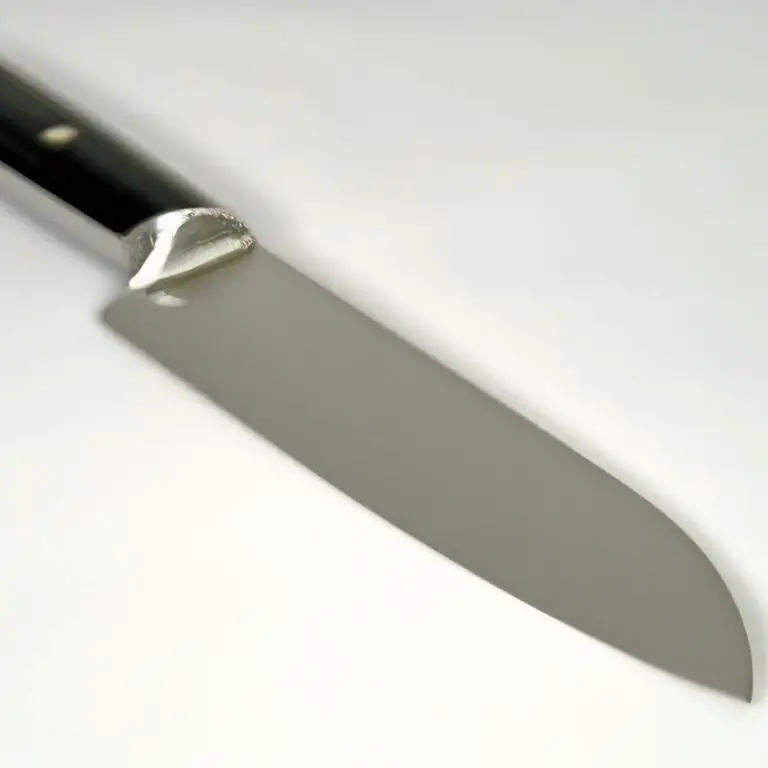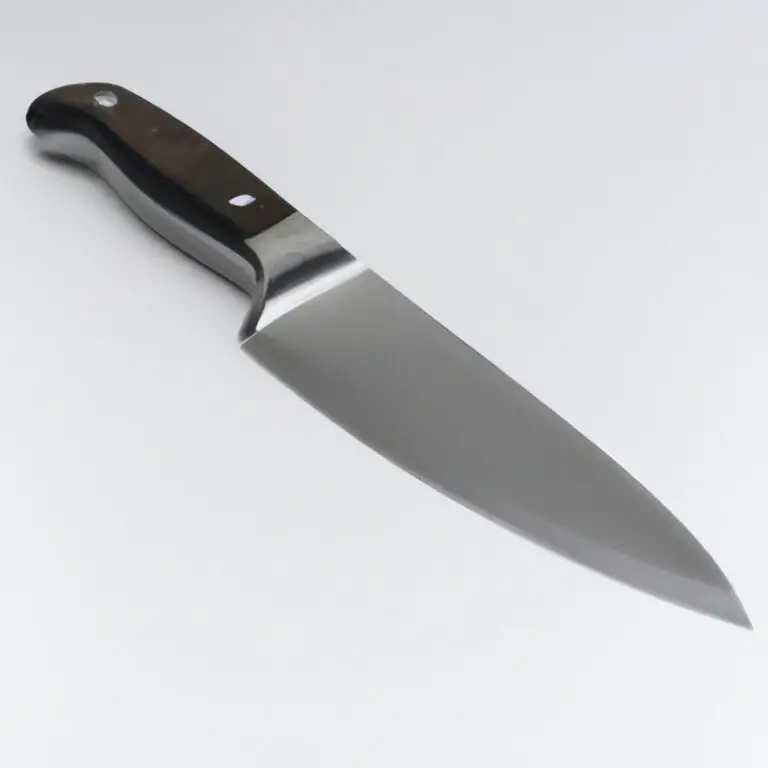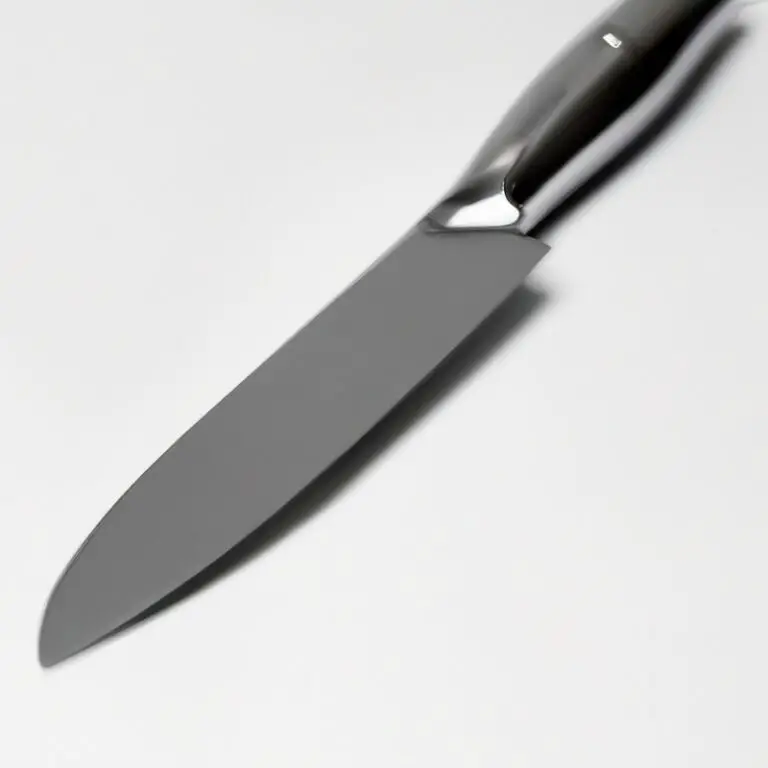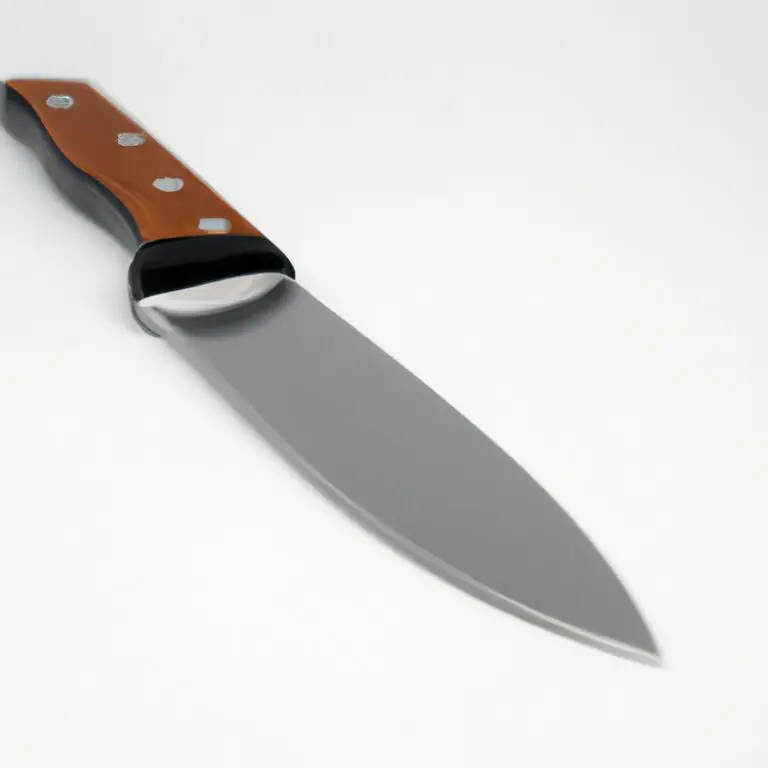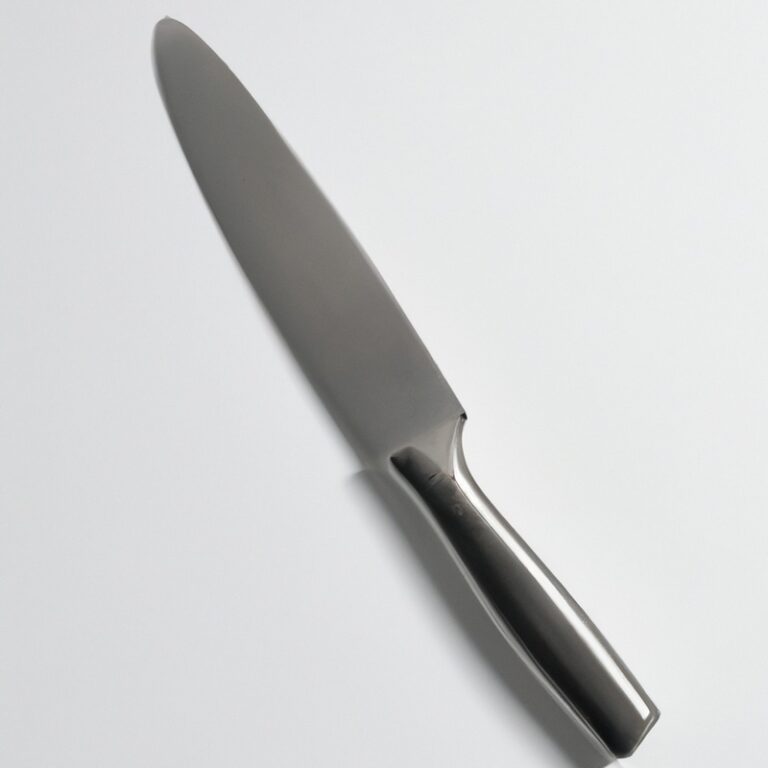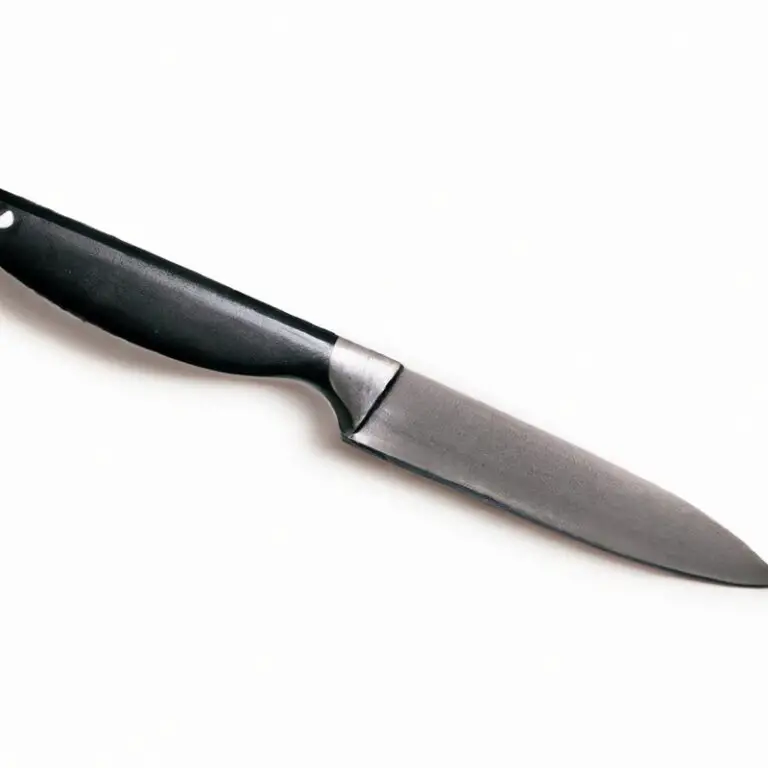How To Deodorize Your Paring Knife?
Key Takeaways:
- Clean your paring knife with soapy water and dry it thoroughly to eliminate any lingering odors.
- Use white vinegar or baking soda to neutralize strong smells on your paring knife.
- Keep your knife in a dry, well-ventilated area to prevent moisture buildup and odor accumulation.
- Incorporate a natural deodorizer, such as lemon juice or essential oils, into your cleaning routine to leave your knife smelling fresh.
Do you ever get a whiff of an unpleasant odor coming from your paring knife, even after washing it? It’s a common problem, but fortunately, there are easy solutions to eliminate the smells and keep your knife fresh.
In this article, we’ll explore the sources of knife odors, and I’ll share my personal tips and tricks for removing them using simple ingredients like vinegar, baking soda, and lemon juice.
We’ll also discuss proper storage and maintenance techniques to prevent future odors and keep your knife in top shape. So, let’s get started!
| Method | Pros | Cons | |
|---|---|---|---|
| 1 | Rubbing alcohol | Effective, quick | Strong fumes, can be harmful to sensitive skin |
| 2 | Vinegar | Inexpensive, safe for skin | May not be as effective as other methods |
| 3 | Lemon juice | Natural, fresh scent | May take longer to remove strong odors |
| 4 | Baking soda paste | Can remove stubborn odors, gentle on knife | Requires more time and effort |
Understanding the source of the odor
The source of the odor in your paring knife could be due to various reasons such as trapped food particles, oxidation, rust, or bacterial buildup. Food particles left on the knife can lead to a foul smell as they break down over time.
Meanwhile, oxidation and rust can occur when the knife is exposed to moisture for an extended period.
Bacterial buildup can also cause a bad smell, especially if the knife has not been cleaned and dried properly after use. Understanding the source of the odor is crucial in determining the appropriate method to remove it.
Using soap and water for basic cleaning
Using soap and water is one of the most basic and effective ways to clean a paring knife and remove odors. To start, rinse the knife under warm water to remove any loose debris or food particles.
Next, apply a small amount of dish soap to the blade and gently scrub with a soft sponge or brush.
Be sure to clean both sides of the blade and the handle thoroughly. Rinse with warm water and dry with a clean towel.
Properly drying the knife after washing helps to prevent any residual odors from developing.
It is important to note that harsh abrasive sponges or abrasive cleaners should be avoided as they can scratch and damage the knife’s blade. Regular cleaning with soap and water can help maintain the longevity of your paring knife.
Vinegar soak to combat strong odors
Vinegar is an affordable and natural ingredient that can combat strong odors on your paring knife. Soak your knife in one part vinegar and three parts water for around ten minutes, then rinse well with water and dry completely.
Vinegar offers antimicrobial properties that neutralize any odors.
However, avoid soaking the knife in vinegar for too long as it can damage the blade’s finish. Vinegar also enhances the kitchen’s overall cleanliness by getting rid of food debris and leaving your knife sparkling clean.
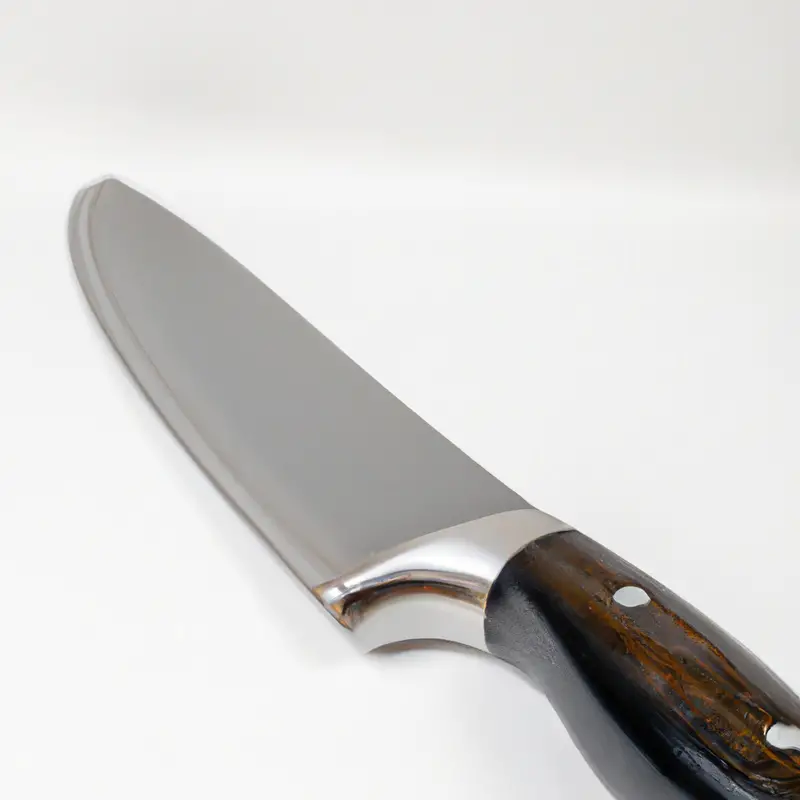
Baking soda paste for residual smells
Baking soda is a common household ingredient that can effectively combat residual smells on your paring knife. To make a baking soda paste, mix equal parts water and baking soda to create a thick paste.
Apply the paste to the affected areas of the knife and let it sit for about 10 minutes before rinsing it off with water.
The baking soda paste works by neutralizing the odor-causing molecules on the knife’s surface. This method is safe and natural, making it an excellent alternative to chemical-based odor removers.
Lemon juice for a refreshing scent
Lemon juice is a natural and effective way to give your paring knife a refreshing scent. Cut a lemon in half and rub the cut side over the blade, making sure to cover all areas.
The citric acid in the lemon juice helps to neutralize any unwanted odors and leaves behind a pleasant scent.
After applying the lemon juice, rinse the blade with water and dry it thoroughly. Lemon juice is a safe and chemical-free option for removing odors from your knife.
Avoiding harsh chemicals
When cleaning your paring knife to remove the odor, it is essential to avoid using harsh chemicals. These chemicals can not only harm the knife’s blade but also pose a risk to your health.
Instead, opt for natural cleaning agents such as vinegar, baking soda, and lemon juice.
These products are highly effective in eliminating strong odors and are safe for both your knife and you. Additionally, consider using environmentally friendly cleaning agents whenever possible to reduce the risk of chemical exposure.
By avoiding harsh chemicals, you can preserve your knife’s longevity while keeping yourself and the environment safe.
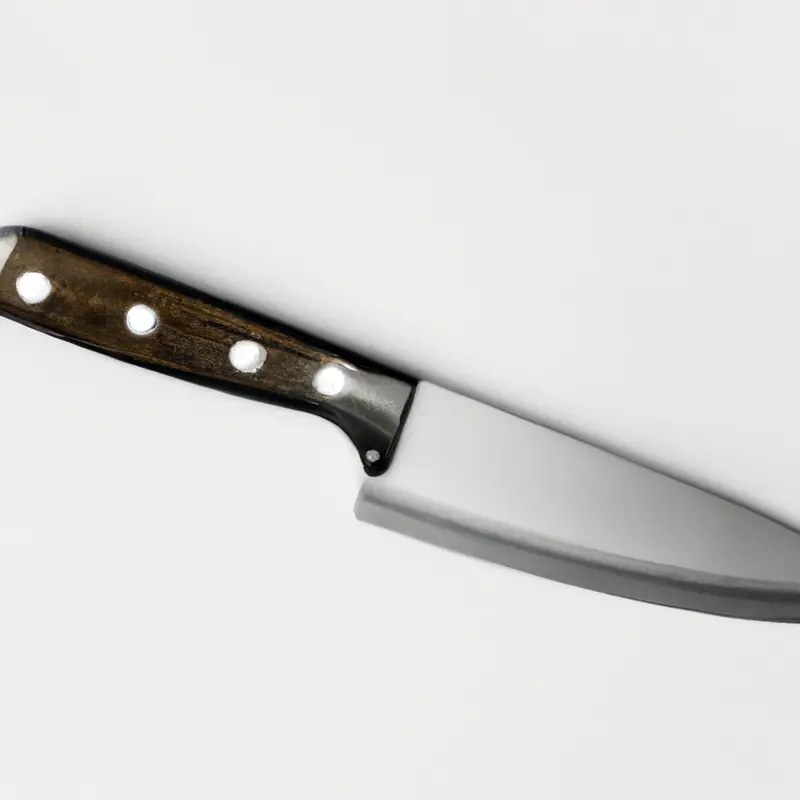
Storage solutions to prevent future odors
Proper storage is crucial to prevent future odors from developing on your paring knife. Here are a few tips:
- Store your knife in a dry place.
- Use a knife block or a knife sheath to protect your knife from moisture and air.
- Avoid storing your knife with other metallic objects as it can cause rust and tarnish.
- Keep your knife away from strong-smelling foods or substances.
- Clean your knife thoroughly before storing it.
By following these simple storage tips, you can ensure that your knife stays odor-free for longer periods.
Regular maintenance for a long-lasting knife
Regular maintenance is crucial for ensuring the longevity of your knife. Here are some tips for maintaining your knife:
- Keep it dry: After using your knife, always wipe it with a clean cloth to remove any moisture. Moisture can cause rusting and dullness.
- Sharpen regularly: A dull knife is not only frustrating to use but also dangerous. Use a sharpening stone or electric sharpener to keep the blade sharp.
- Oil the blade: Applying a thin layer of oil to the blade helps protect it from moisture and prevents rusting.
- Store it properly: Avoid keeping your knife in a damp or humid environment as it can damage the blade. A knife block or a magnetic strip is an excellent way to store your knife.
By following these simple maintenance tips, you can ensure that your knife stays sharp and odor-free for a long time.
Tips for removing rust on the blade
To remove rust on the blade, you can try the following tips:
- Use steel wool or aluminum foil to gently scrub the rust off the blade.
- Apply a rust remover, following the manufacturer’s instructions, and wipe away with a clean cloth.
- Create a paste by mixing baking soda and water, then apply it to the rusted areas. Let it sit for a few minutes before scrubbing off with a toothbrush or cloth.
- Pour vinegar over the rusted area and let it soak for a few hours to dissolve the rust. Wipe away with a clean cloth.
- Apply a rust inhibitor or oil to the blade after cleaning to prevent future rusting.
Remember to always dry your knife after use and do not let it sit in water for extended periods to prevent rust from forming.
Seeking professional assistance if necessary
If the odor on your paring knife persists after attempting the methods mentioned earlier in this article, it is time to seek professional assistance. A professional knife sharpener or cleaner can help you remove the odor and keep your knife in top condition.
Professional services are especially recommended if you have a high-quality or specialized knife, as improper cleaning can damage the blade.
It is worth investing in a professional cleaning service to extend the life of your knife and to keep it in top condition. Do your research and find a reputable professional in your area with experience cleaning and sharpening paring knives.
Final Verdict
Removing odors from your paring knife can be done easily and effectively with the right tools and techniques. By understanding the source of the odor, using natural cleaning solutions like vinegar and lemon juice, and practicing regular maintenance, you can ensure a fresh-smelling and long-lasting knife.
Remember to avoid harsh chemicals and seek professional assistance if necessary.
With these tips, you can confidently eliminate odors and enjoy a pleasant and sanitary kitchen experience. Trust in the reliability and expertise presented here, and say goodbye to unwanted knife odors for good.

